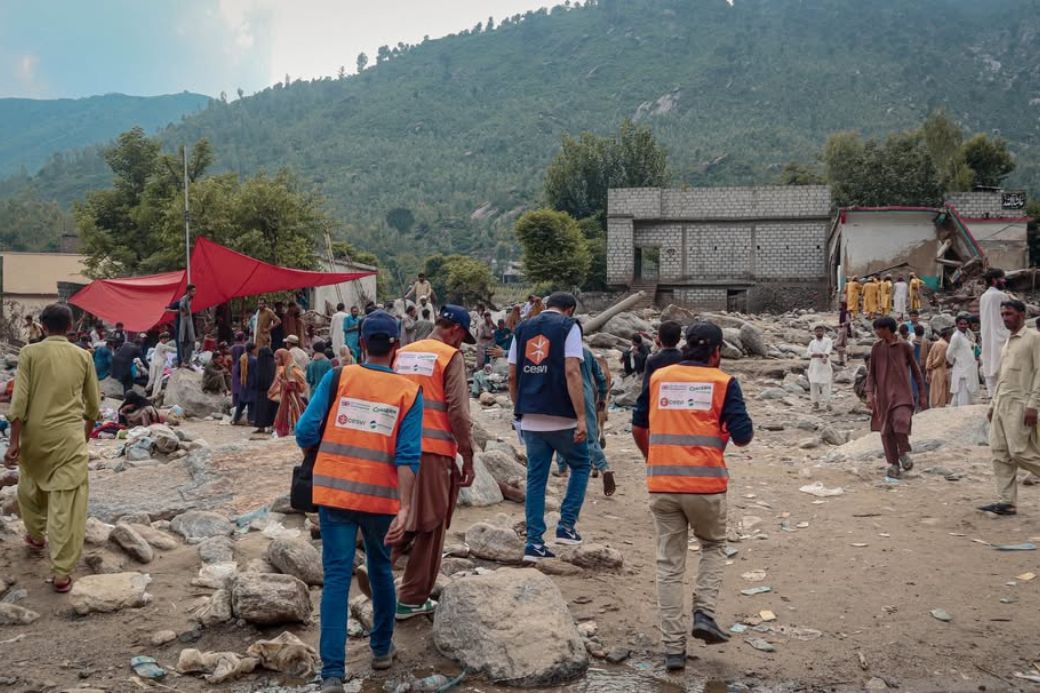Pakistan is one of the countries most vulnerable to climate change, with extreme events such as heatwaves, torrential rains and flash floods shaping the lives of millions of people, with devastating consequences for the economy and the survival of rural communities. The 2022 floods, which submerged one third of the country, remain an open wound. Three years on, the torrential rains of recent months have once again brought much of the country to its knees.
Rainfall, heavier and more violent than average, has triggered landslides, flooding and the collapse of infrastructure nationwide. To date, at least 799 people have lost their lives, more than 1,000 have been injured, and over one million have been affected. Entire communities have once again been forced to leave their homes, with some 30,000 people displaced and extensive damage to more than 7,200 houses. Moreover, the floods have swept away thousands of livestock, depriving families of a vital source of food and income, thereby worsening an already chronic food crisis.
CESVI on the ground
A key part of CESVI’s work in the country is to prepare communities to respond to climate shocks, which are becoming ever more frequent and ever more severe. Over the past few years, we have trained 180 young people to support search and rescue operations in emergencies: in recent days, CESVI’s young volunteers have been deployed in Buner district (Khyber Pakhtunkhwa province) – one of the hardest hit – to evacuate families, provide first aid and deliver assistance in the villages.
In addition, CESVI teams are on the ground in the areas worst affected by the floods, assessing the situation and the needs of communities, which have reached dramatic levels:
- Equipment is lacking to continue search and rescue operations quickly and safely.
- Thousands of families are living on the streets and in urgent need of tents, mattresses and blankets.
- There is an urgent need not only for food parcels, but also seeds and agricultural tools to allow communities to restart their agricultural production.
- With the rains, overcrowding in tents and dire sanitary conditions, it is vital to restore the supply of safe drinking water as soon as possible, distribute hygiene kits and mosquito nets to reduce the risk of diseases such as cholera, malaria and dengue spreading.
Between emergency and chronic vulnerability
Pakistan is caught in a cycle of recurring emergencies, trapped between structural poverty and devastating climate-related disasters. Every monsoon season risks turning into a catastrophe, with entire villages submerged and thousands of families losing – year after year – their homes, crops and livestock, left without hope.
Stand with us alongside the most vulnerable communities: support our interventions for the people of Pakistan.
